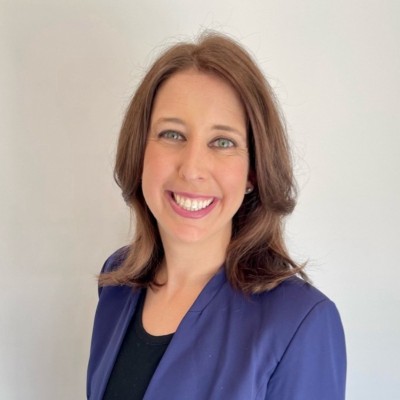Episode 199: Numa Sales on Helping Reps Maximize Their Unique Strengths
2.6K Views | 17 Min Read
Shawnna Sumaoang: Hi and welcome to the Sales Enablement PRO podcast. I am Shawnna Sumaoang. Sales enablement is a constantly evolving space and we’re here to help professionals stay up to date on the latest trends and best practices so that they can be more effective in their jobs. Today, I’m excited to have Numa Sales from Hedera Dx join us. Numa, I would love for you to introduce yourself, your role and your organization to our audience.
Numa Sales: Thank you very much for having me today. I’m Numa, I’m 27 years old, and I come from a lovely city in the south of France called Aix-en-Provence. I am French, but I am in Switzerland.
What I would say about me, I’m strongly passionate about entrepreneurship, sales negotiation and I want to state right away that I didn’t change my last name because of my occupation. It was much more the other way around, I was born with it. Kind of like destiny. I’m actually really enjoying it. Nothing to do with a curse actually, because my last name is Sales I always worked in sales roles with great B2B sales team, generating hundreds of millions at leadership companies like Microsoft, CWT, L’Oréal, and now I would say I really found the right place at the right time being responsible for the sales enablement here at Hedera Dx, which is a very, very exciting and a very fast-growing company based in the Biopôle campus of Lausanne working with tremendous and very inspiring profiles. We are definitely contributing to making this world a better place, just concerning the mission of the company.
To give you a glimpse of this amazing adventure, we are making liquid biopsy a reality in Europe. So I’m sure you are very aware of what liquid biopsy is in America, but here in Europe it is not very popular for now, so we will try to sell a very great platform. I really do not want to spoil things for the moment so it will remain a tease, but just to have in mind that soon we will definitely witness a very European focus project here that addresses suffering for a large number of people here in Europe.
SS: Well, Numa, I am honored that you are able to join us on this podcast today. You actually caught my eye because you wrote an article where you talked about your career journey so far, and there was a quote in there that really caught my eye because you said that “adaptation is intelligence.” I’d love for you to explain to our audience from your perspective why our resiliency and the ability to adapt are so important for salespeople to succeed today.
NS: Yeah, definitely. It was my mathematics teacher that used to tell me this sentence “adaptation is intelligence.” I meditated on it since this time and actually adaptation is a very common trait in nature to survive. That’s a very dumb picture of life, but that’s inherently very true. You cannot see a dog complaining about losing a leg in his life, he would still enjoy his life and he would try to jump over everything, even if he is handicap. We are not dogs and even if I really like them and they are great teachers for us, focusing on ourselves today as human beings is very complex by essentially confronting two different kinds of challenges on the daily routine, especially for salespeople.
I would say that being resilient is really a key skill to work on. I said to work on because you need to involve yourself at some point in the process of becoming more adaptable, and it leads us naturally in this process to these other very needed skills you should get as a seller which is empathy. Empathy is the possibility for you to really feel and put yourself in the very own shoes of the people you have in front of you and being able to solve their specific issues. So if you are not capable of adaptation, if you’re not smart enough, smart speaking in terms of emotional intelligence, you won’t be able to identify and provide answers after listening carefully to what is being said. You have to transform yourself to become a sponge to the water following the arrival of information provided by the one which is currently in front of you to be able. Then you will be able to provide efficient solutions. That is a very short list of things to say about adaptation. If you are not capable of being resilient, for example, when the negotiation is becoming a tough place or the projects are not being shipped in time because the boat gets stuck in the Suez Canal for example, you won’t get anywhere.
What I especially like about these very simple quotes is that I can understand that a young student studying mathematics was able to remember for years is now revealing something much more fundamental, which is that life is always changing and that’s a very, very basic thing to say, but we are always forgetting it. You enjoy things, and tomorrow morning while you were sleeping peacefully in your bed, you wake up and everything is kind of changed, so it is therefore our responsibility to accept it and to evolve accordingly because those are the possibilities you have. You can get stuck in the exact same place for a very long time just by saying to yourself and believing that it should not be like this, but in reality, just accepting change for what it is will help you grow.
SS: Absolutely. Now to double click on this, how do you help salespeople adapt to some of the evolving business environment and buyer needs that are surfacing today?
NS: Yes, that’s a great question. I am not going to speak about working in a remote office or stuff like that, but I think nowadays we are confronted to the very buying journey paradigm changes from the buyer just telling the seller what he wants and needs. In this whole new picture the buyer is waiting for the seller to work for him. To do the process and to evangelize him with a new solution or project. Today, with electric cars for example, people are already very busy with their own lives. They expect you to provide the insights because we are supposed to be the master of our own industry to be the master of our solution.It doesn’t mean to know everything, but it does mean you are able to find the answer the customer expects from you. If you’re not able to place yourself as an expert, no one will listen to you today. When we look at the news, there are tons of experts and they are the one we listen to and receive answers to the covid crisis for example. I don’t say that I agree with it, but it is what it is.
On one side you have to be an expert, right? Being super-specialized and on the other side you have to evolve to match with the specific chaotic environment of selling, meeting with the high expectations of your customer, which is already very well informed about your solutions, thanks to our friend Google, so my humble motive here is to help my team and I have our minds at ease when we have business.
What I mean by that is I want us to be comfortable with the idea of navigating in the notion of information, insights, comments, catching news sometimes with fake data and to be able to catch the ones that will lead to somewhere interesting for us and our customers and patients. Pragmatically speaking and to answer your question, it is much more dealing with us as human beings, turning ourselves into effective business people aware of our environment, aware of the real innovations, aware of the real values and the real answers, not just sellers trying to push a product as it was in the previous paradigm. Especially in my company where we are dealing with patients and because everyone on my team is personally involving him or herself in doing their job.
SS: Well, I think that’s fantastic advice on how to address evolving buyer needs. Now I want to shift a little bit you mentioned on LinkedIn and I loved this, that you guide salespeople to maximize their potential according to their uniqueness. How can enablement practitioners help salespeople identify what their unique skills are and then how do you go about nurturing these strengths through enablement?
NS: That’s actually a perfect transition to what I was just saying because one of my objectives is to lead everyone to the next step where they are fully aware and conscious about the whats and whys that are in front of customers today. When representing a company composed of a bunch of people, they are working hard behind you, developing products that they believe in, designing stuff that they have spent hours working on, so what I mean is that you have to know yourself at a point that you can say with confidence “I don’t know.” I didn’t discover this by myself. It’s like this mindset of being able to say, I don’t know. I had the chance of meeting incredible people who were really comfortable to tell me straight in the eyes, I don’t know, and that’s not an issue because I never questioned their legitimacy. It was absolutely the opposite. If you are capable of saying, I don’t know, it means a lot because you worked on being comfortable with you not being the superhero of the story, the kind of the supermom providing a great education to her children, the super managers knowing everything, being the perfect one, you are remaining with your human traits.
By saying, “I don’t know”, you tell the truth and make everyone acknowledge the fact that you cut the bullshit. Particularly speaking, everyone at my company did this personality test a couple of weeks ago and they really enjoy doing it. It was really insightful because personally, I worked for years with the Myers Briggs test, which is really, really great, but the DISC is much more focusing on interpersonal skills and for a team. It is really a game-changer. So answering your question about helping people find their unique skills, I would say it’s not just strengths, it is to also work on our weaknesses. It’s much more about finding the golden balance between strengths and weaknesses, and raising awareness about the reasons someone is where she or he is today.
SS: I do love that approach. Now, on the flip side, thinking beyond just unique strengths. I’d love to understand, have you actually identified what are some of the common skills that you’ve noticed amongst your top-performing salespeople? How can sales enablement help replicate those similar skills across their entire sales team?
NS: I really like the world to replicate, not to copy. Actually, the answer is really simple. They know how to shut up. It’s like they know how to actively listen and while they are listening to their prospecting customers’, they know how to build a picture of their interlocutor while they are already busy speaking with them. They know how to listen without trying to find the moment to answer their questions. It’s like we had a project demo with an external vendor a couple of weeks ago and I’m really convinced it was not his fault at all, but he always repeated during his demo, “Does it mean something to you, what I just presented? Does it make sense for you?” And I think he was expecting us to say, “Yeah, exactly what I was looking for. That’s terrific. I’m greatly surprised. Where and when can I sign the contract?”
Instead, a top performer would not in any way have this awkward setup at any point during the sales process, because he or she would have presented something that the very customer asked for at first. So it will make sense. The most effective people I met in my life are the ones that know how to put aside their ego to benefit the world. Speaking about benefiting the companies they work for, but most of all benefiting the people they are speaking to. I strongly recommend this book, “Good To Great” from Jim Collins, which is really great on this subject. Putting aside one’s ego to benefit all, that’s immensely demanding for someone to be at this stage of development in her or his life to achieve. To put aside all of his imaginary plans and to cut the bullshit, to focus on the very needs of the human currently expressing his struggling point and being comfortable saying my products will answer your issue.
SS: Well, I think that’s some fantastic advice. Now in closing, Numa, my last question to you, in addition to some of the art of selling or soft skills, I think there also is some science to consider, such as process and tools. So Numa, how do you effectively balance the two to ensure that salespeople can really leverage all of the processes and tools that are at their fingertips in combination with some of those soft skills?
NS: Actually, I have to confess that here at Hedera Dx we have a very great sales manager. My role is not to deal with the tools, and I’m really glad to count on him for these things, but I do play a role when representing the kind of legitimacy of using these tools in our team. So for example, in the next few weeks we are going to implement a very great tool, and my role here is to identify and try to evangelize my team with what and how it will benefit us. I did a lot of research on tools to help with my specific self productivity in the past, and each time I tried, it often didn’t work. Not because I tried each time a shitty one, it was definitely because I didn’t state at the very early stage what was my issue. If you work 90% of the process identifying your pain point, you will get the job done with the right tools. This mandatory element of my problem is not present, so it won’t benefit it. Even if I paid for this, I get rid of it immediately. To answer the question, we want sellers already very busy enjoying sales negotiation and exploratory meetings with our clients. To adopt processes and tools if we are not bright and clear on which pain point we are currently solving, will just get in our way.
Pragmatically speaking, we are not focusing on implementing processes and tools, but much more on solving pain points. My real objective is to help to maintain this balance between a data-driven approach that could be constraining sometimes with the very chaotic trait of the improvisation and freedom we can find in the selling process. I try to act as a gatekeeper of which pain points are relevant to address today, but I am grateful to have a wonderful, skilled and experienced team already addressing these items. I’m much more concerned with the fun part, which is the implementation phase, and using new tools that will bring us more joy in our daily routine, instead of making everyone worried about mastering the tools that are not efficient or trying to adopting a time-consuming process that will prevent us from achieving our very demanding objectives.
SS: Well, Numa, I really appreciate you sharing your experience and your story with our audience today, so thank you so much for taking the time to chat with us.
NS: Thank you. It was a pleasure speaking with you today and I really appreciate your time and work as well. Thank you for evangelizing people with sales enablement and especially interviewing European people, because sales enablement is not very famous here, but it could benefit a lot of our companies. Thank you very much and have a lovely time.
SS: Fantastic to our audience. Thanks for listening. For more insights, tips, and expertise from sales enablement leaders visit salesenablement.pro. If there’s something you’d like to share or a topic you’d like to learn more about, please let us know. We’d love to hear from you.














